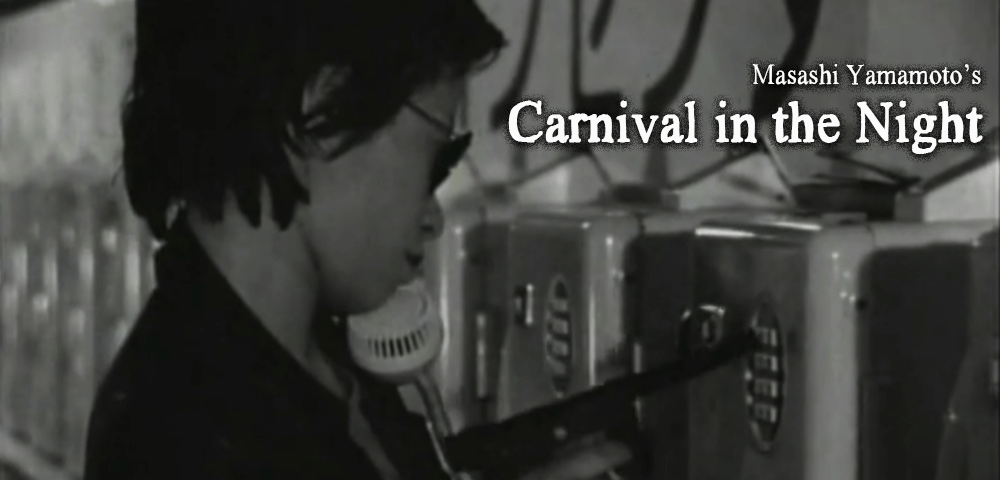
CARNIVAL IN THE NIGHT
dir. Masashi Yamamoto, 1981
Japan. 108 min.
In Japanese w/English subs.
FRIDAY, MARCH 3 – 10:00 PM
WEDNESDAY, MARCH 8 – 10:00 PM
MONDAY, MARCH 13 – 10:00 PM
FRIDAY, MARCH 31 – 10:00 PM
This Rockuary, Spectacle Theater and Rain Trail Pictures invite you to take a walk on the wild side with Masashi Yamamoto’s micro-budget no wave masterpiece, CARNIVAL IN THE NIGHT.
Made at the tail end of the 1970s as Japan’s major studio system was in disarray, the film is one of the crown jewels of the country’s jishu movement: A creative storm of independent, anti-institutional, borderline anarchist filmmakers operating outside of commercial cinema structures, and who would help shape Japanese cinema for decades to come.
The film follows Kumi (Kumiko Ota playing a lightly fictionalized version of herself, similar to her later character in Yamamoto’s ROBINSON’S GARDEN), a newly divorced single mother and aspiring punk rocker, as she embarks on an unusual odyssey along the fringes of Tokyo’s night life. Her journey takes her through the seedier side of the city’s DIY punk scene; each stranger, each sexual encounter, each random act of violence more unsettling than the last.
Much like the “no wave” film movement that was simultaneously taking shape in New York, Yamamoto’s film blurs the line between documentary and fiction in a way that underscores the prickly creative energy of its corresponding musical scene. The gritty 16mm photography and verité shooting style help capture the transgressive ethos of Tokyo’s underground in its most unbridled form, contrasting images of a country in the midst of an economic boom against the lives of its squatters, hustlers, criminals, and low-lifes.
“These are Yamamoto’s politics: to squat, to squander, and to soil reality. Whether anyone takes notice is beyond him; his unceasing state of resistance exists beyond society and blooms by virtue of its separation from its norms. ‘I only plan to make the kinds of films I want to make,’ he has said, ‘and aim at nothing more than a small circle of spectators.'”
– Nicolas Pedrero-Setzer, SCREEN SLATE
